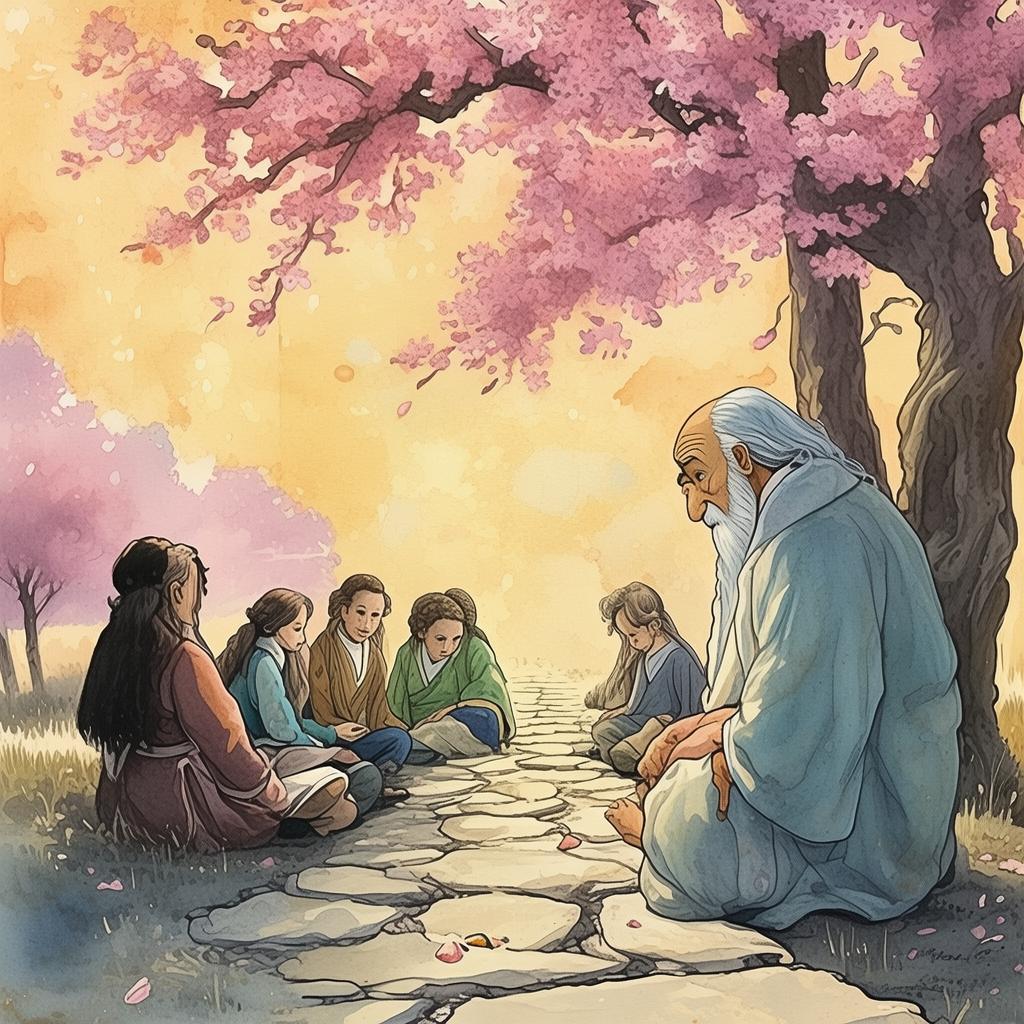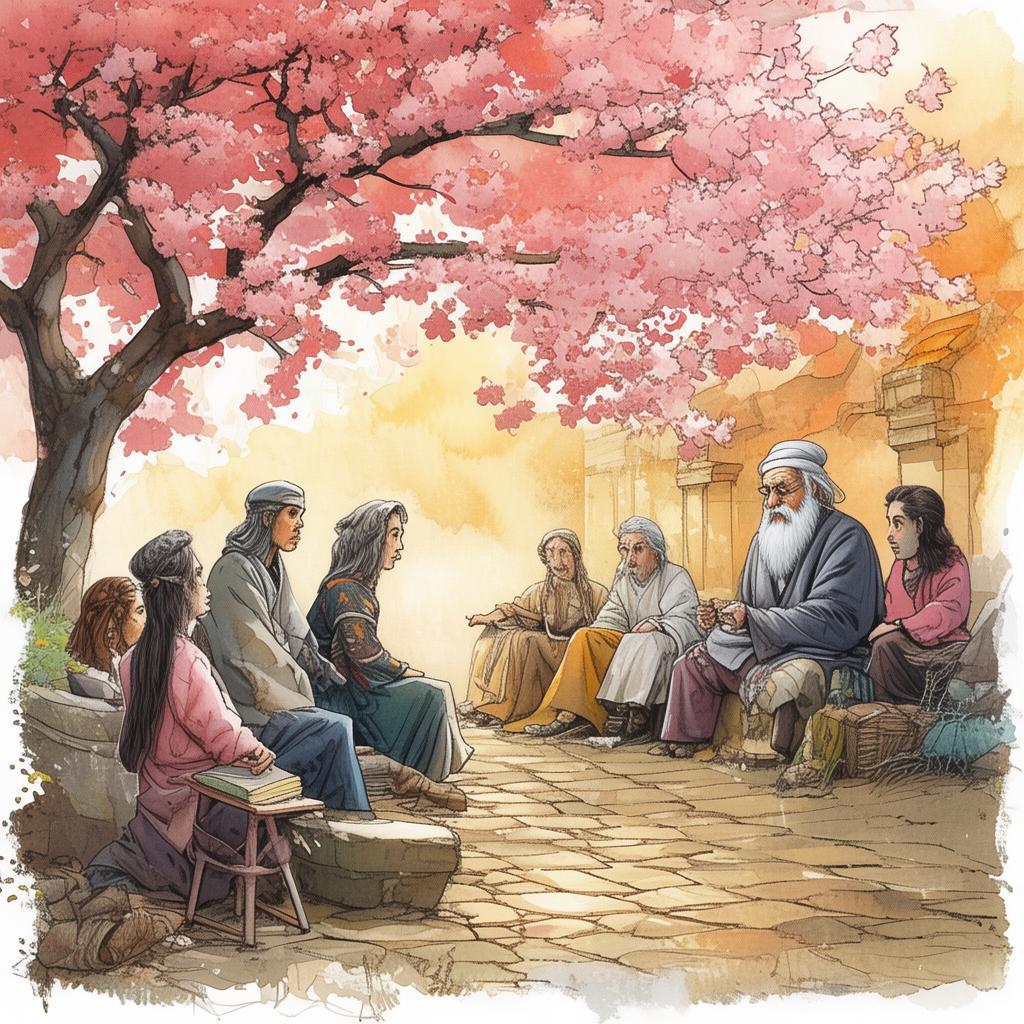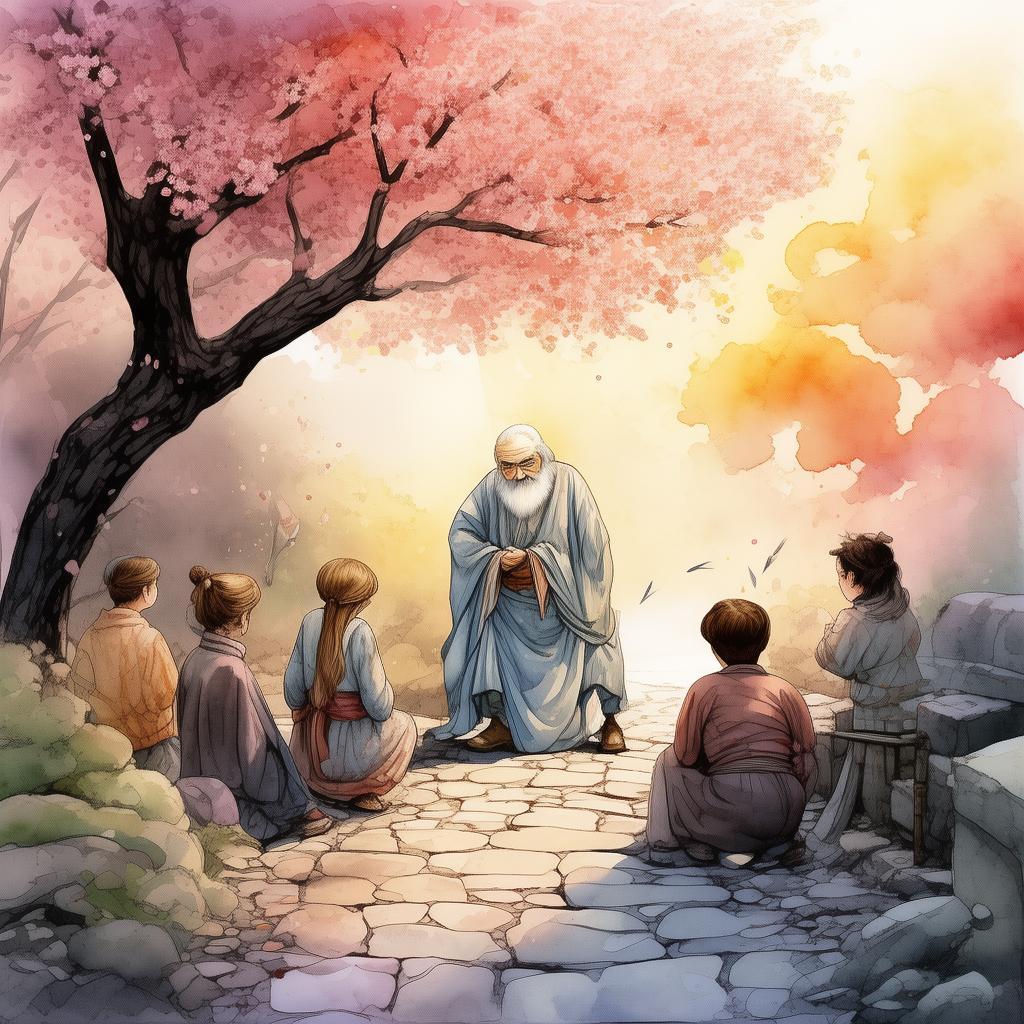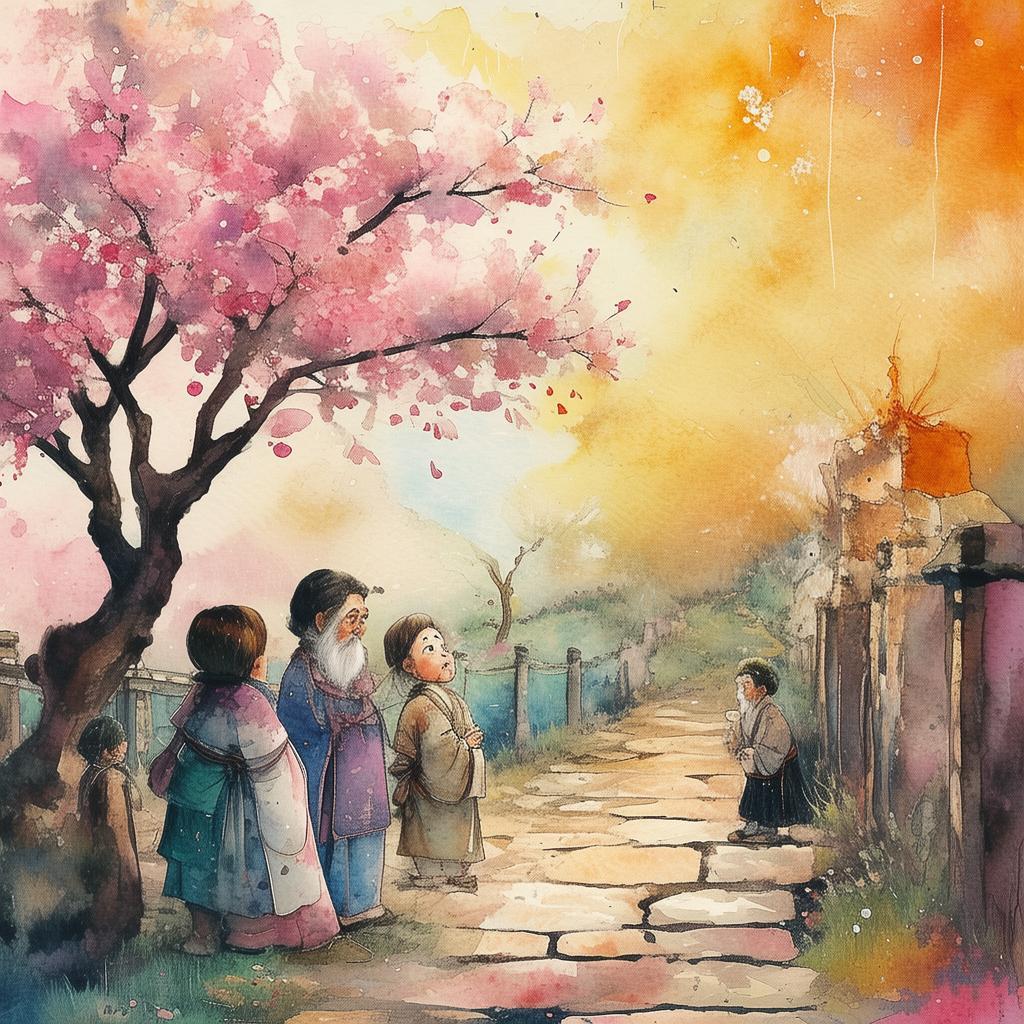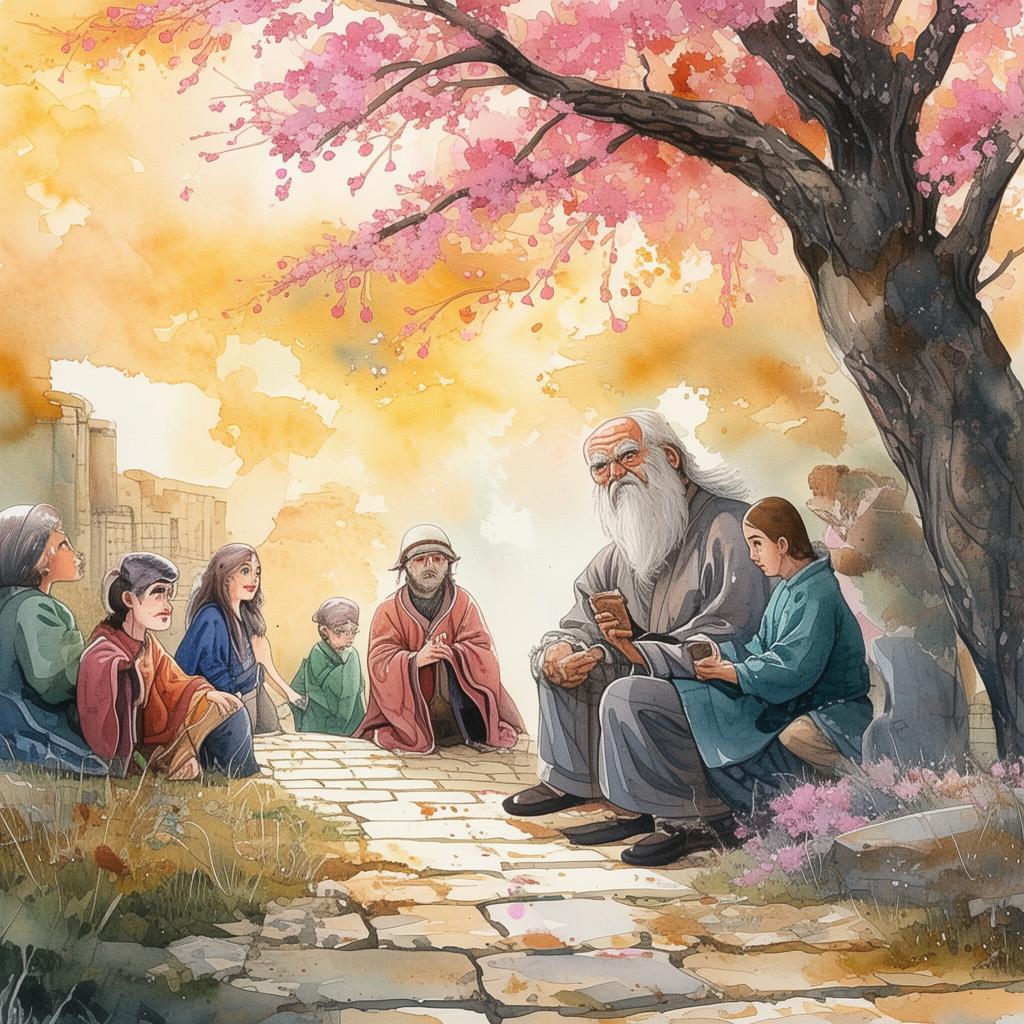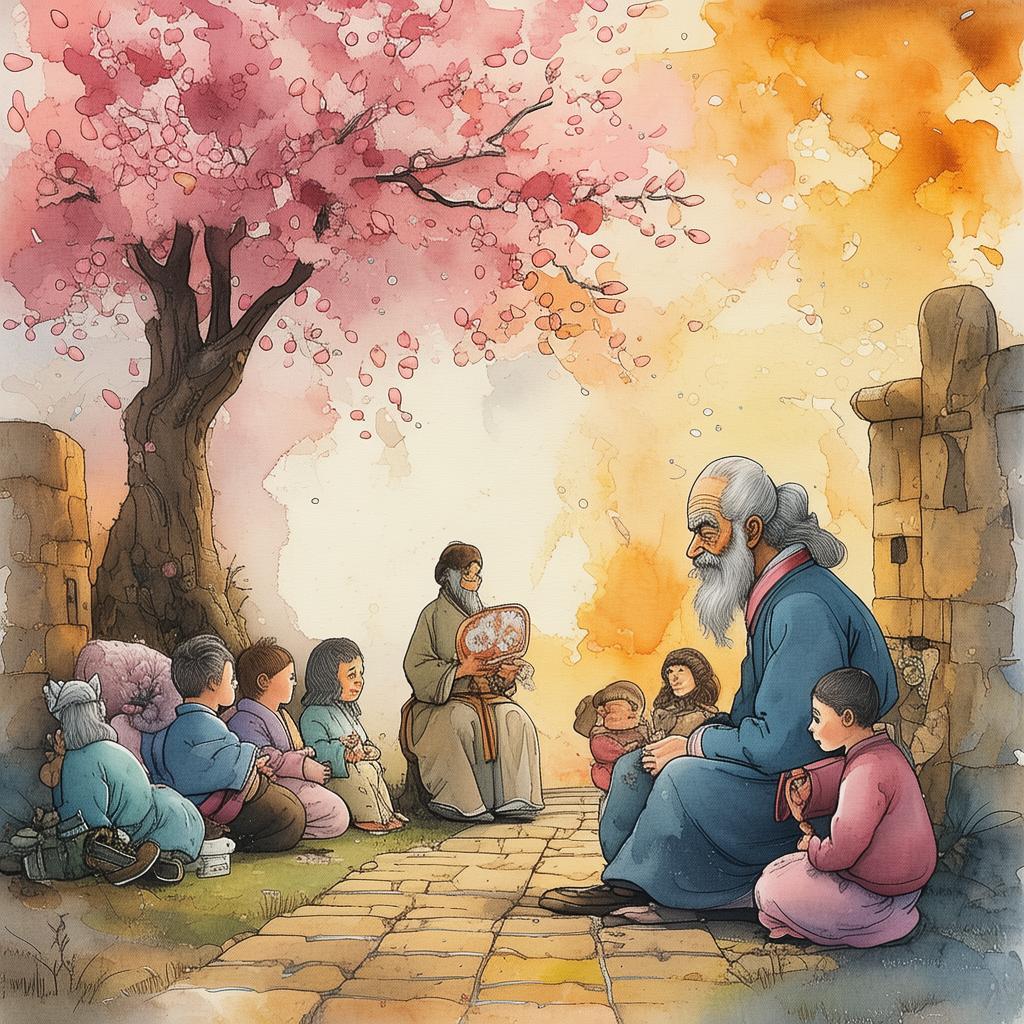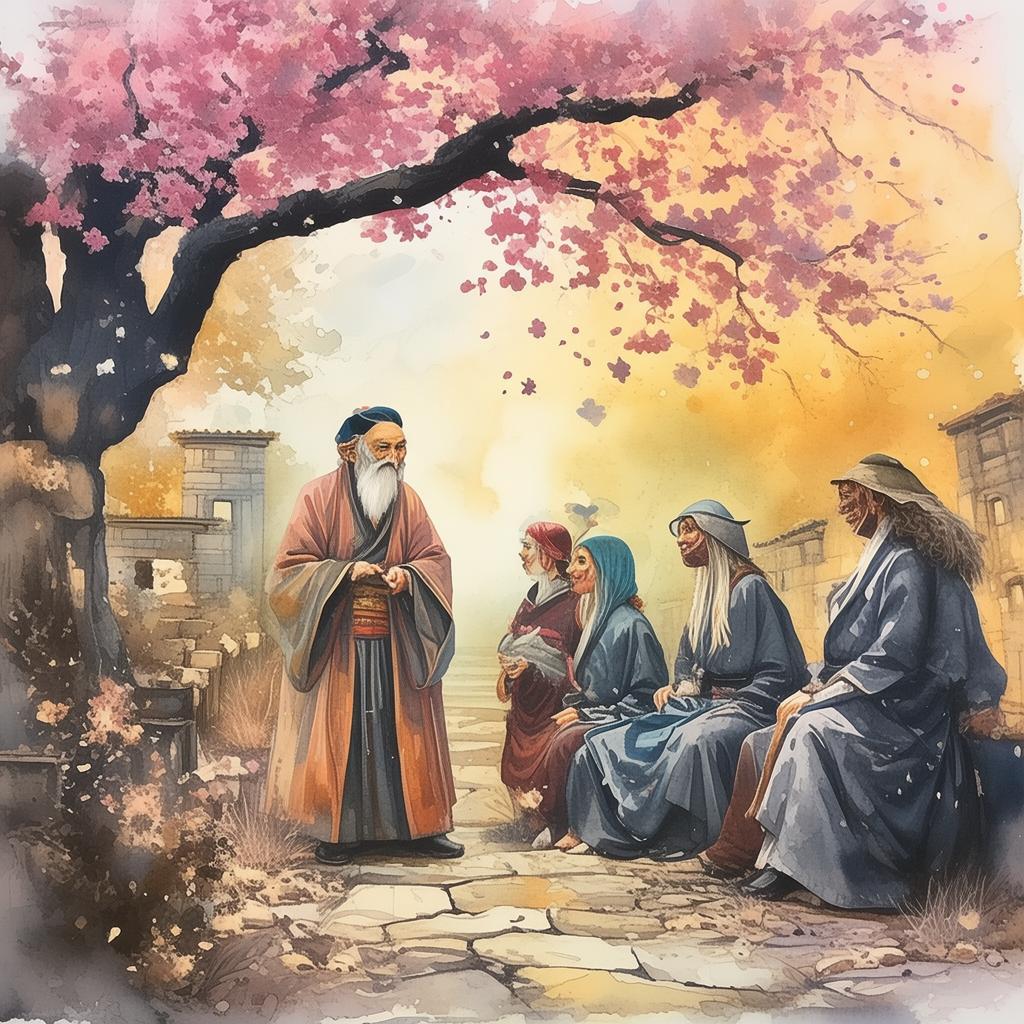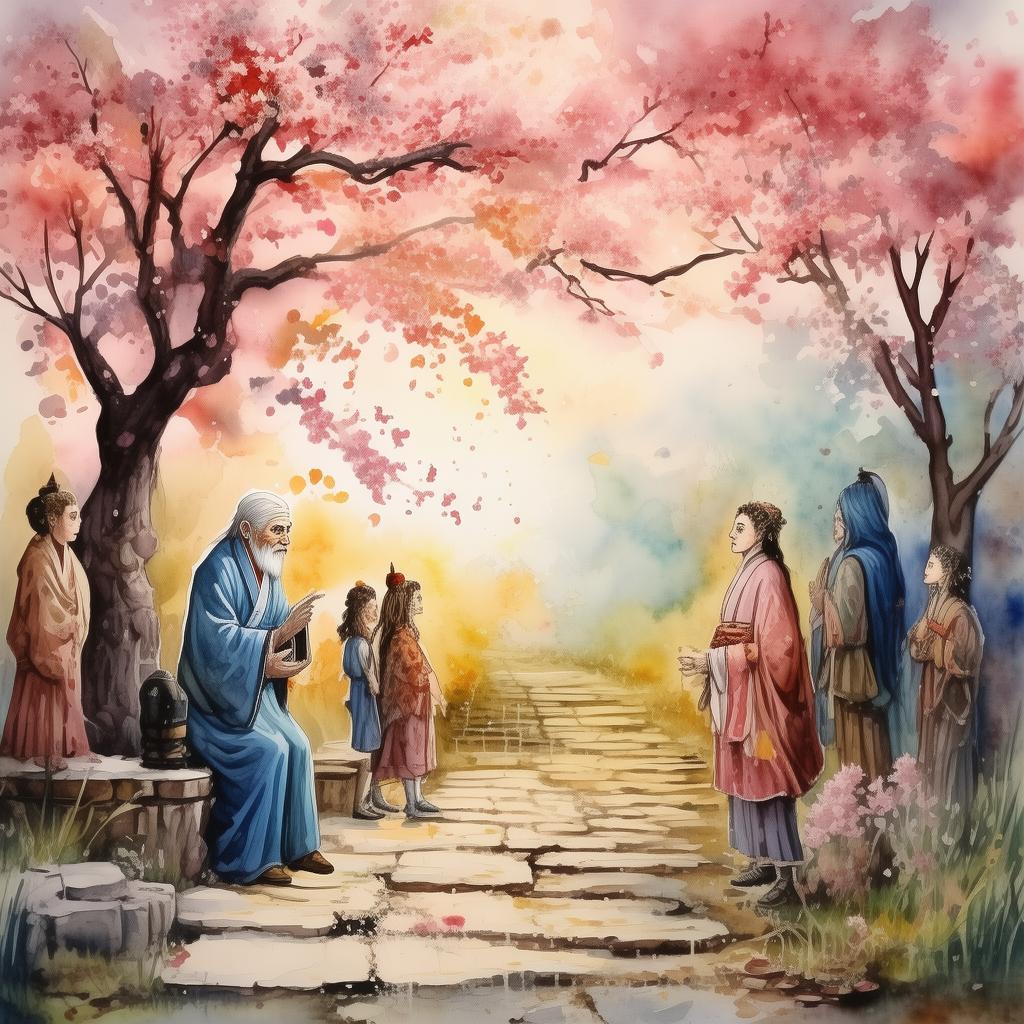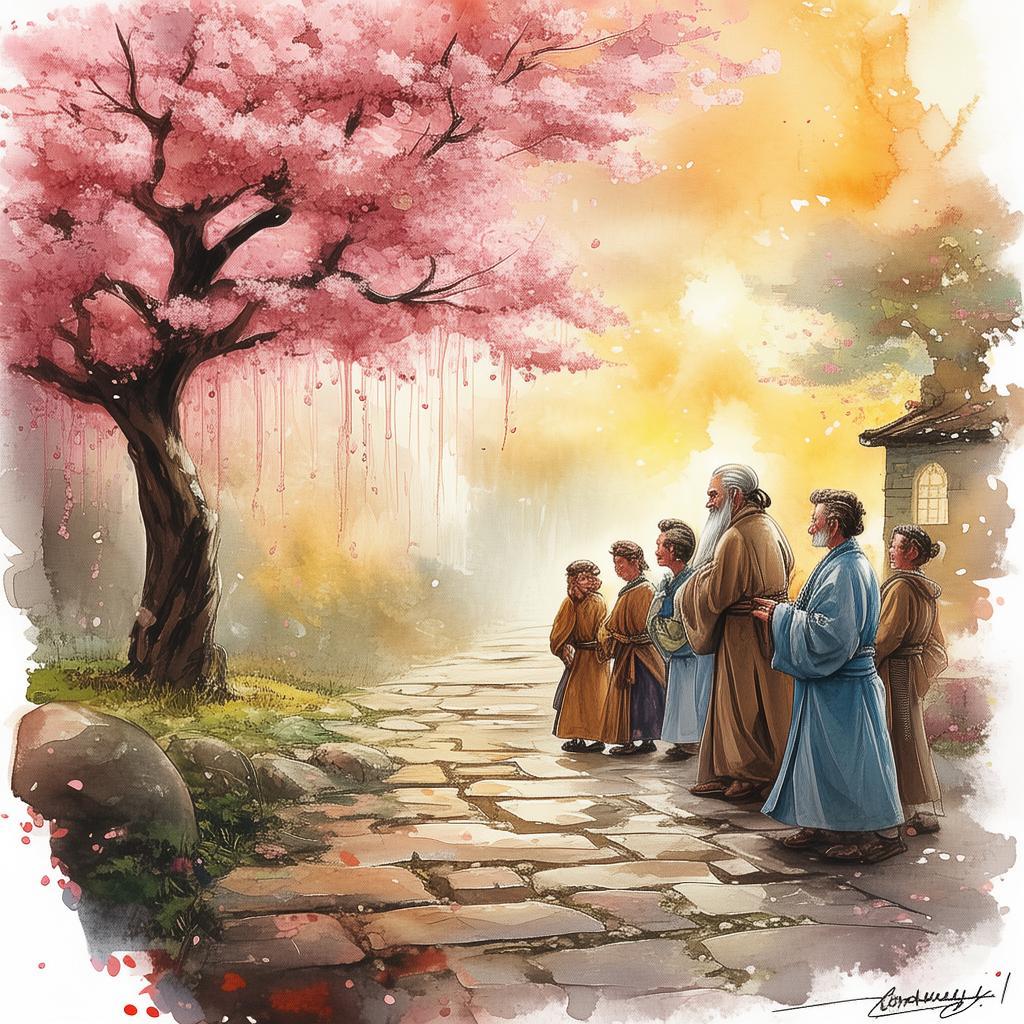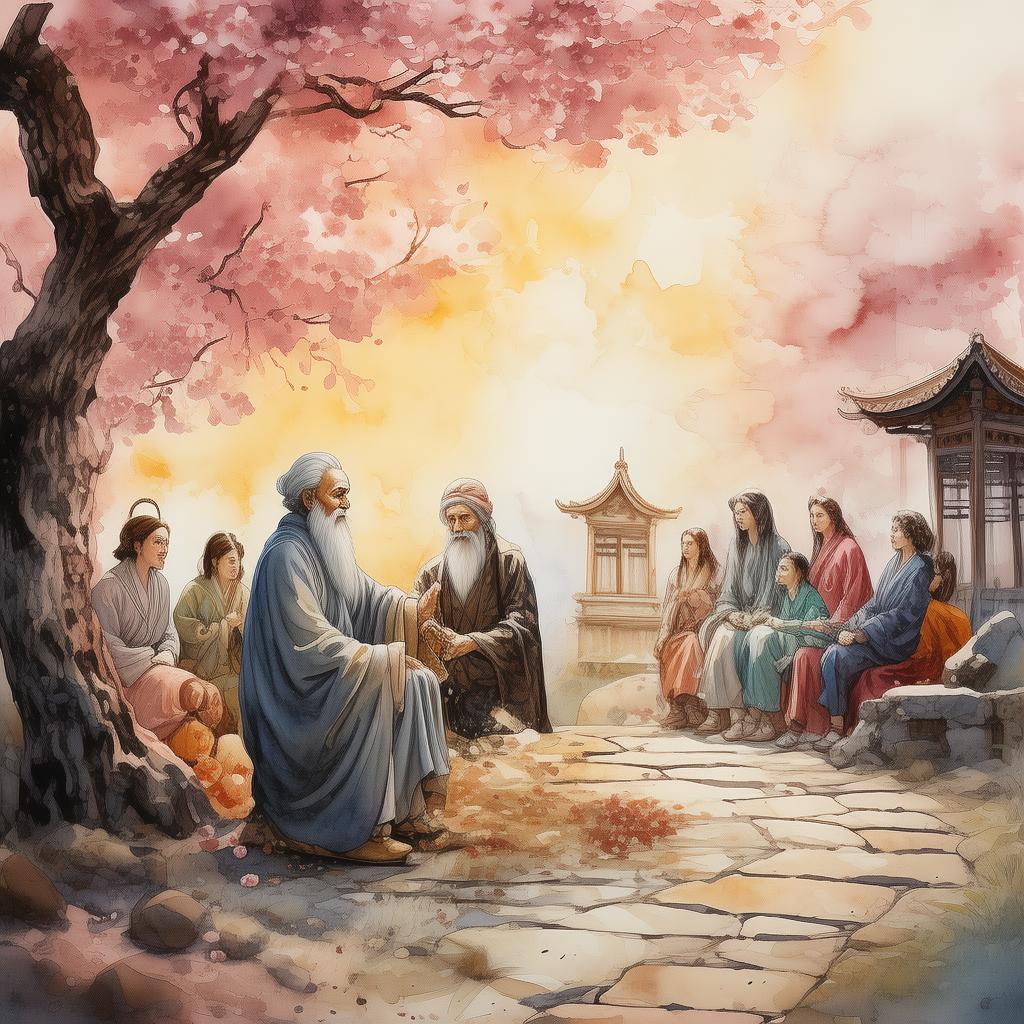Unyielding Resilience: The Scribe of Time's Battle for Knowledge
In the heart of the ancient kingdom of Linghua, nestled among the towering mountains and lush forests, there was a grand library known as the Vault of Eternity. Within its hallowed walls, a scribe named Jing Hua toiled day and night, recording the wisdom of the ages. His hands, calloused from years of writing, danced across the parchment, crafting stories that would live on for eternity. But Jing Hua's heart yearned for more—knowledge that transcended time itself.
One fateful evening, as the last rays of the sun painted the sky in hues of gold and crimson, Jing Hua discovered an ancient scroll hidden beneath a dusty tome in the library's forgotten corner. The scroll was unlike any he had seen before, its edges frayed and its ink dark as the night. As he unrolled it, he found a strange symbol—a clock encircled by a spiral of time. The symbol pulsed with an otherworldly light, and Jing Hua felt a strange pull.
With a trembling hand, he traced the symbol, and suddenly, the world around him blurred, and he was no longer in the Vault of Eternity. He found himself in the heart of the ancient kingdom, amidst the bustling streets of a bygone era. He realized that he had traveled through time, but not as a traveler, as a scribe, his role had not changed, yet everything was different.
He saw the people of the ancient kingdom, dressed in fabrics and attire he had only read about in the books. He observed their lives, their struggles, and their dreams. He learned of a great battle looming, a war that would change the kingdom's fate. But Jing Hua also noticed something unsettling—there was a lack of knowledge, a darkness that seemed to consume the minds of the people.
Determined to right this wrong, Jing Hua set out to write, to educate, and to enlighten. He taught the people about the world, about the sciences, and about the arts. But as he shared his knowledge, he encountered resistance. The leaders of the kingdom feared that education would lead to rebellion, and they were not wrong. The people, inspired by Jing Hua's wisdom, began to question the authority of the kings and the nobility.
The king, feeling threatened by Jing Hua's influence, decreed that his teachings were heresy. He ordered his soldiers to hunt down Jing Hua, to silence his voice. But Jing Hua was no ordinary scribe; he had a purpose, and he would not be stopped. With each passing moment, he became more determined to preserve the knowledge of his time for the future.
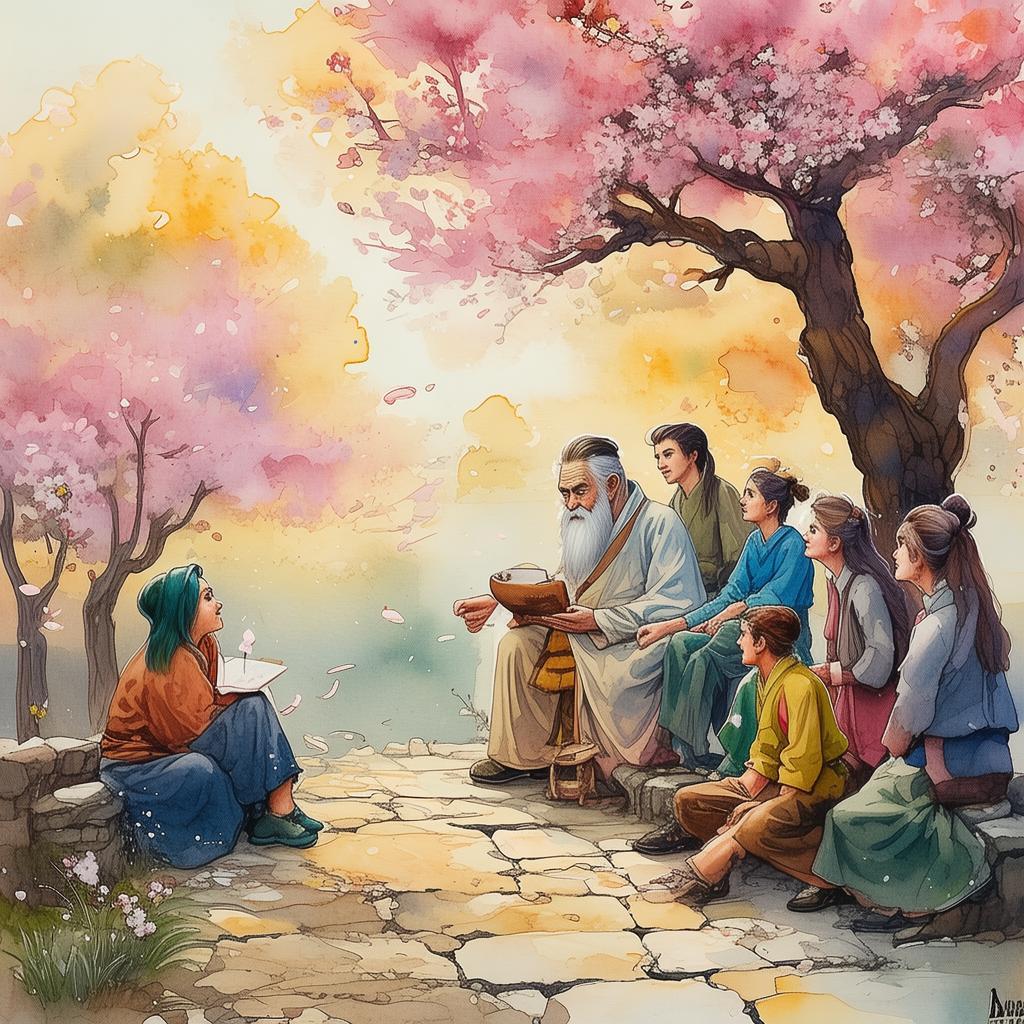
As the war loomed, Jing Hua found himself at the center of a great conflict. He witnessed the destruction, the loss of life, and the pain of war. Yet, amidst the chaos, he continued to write, to share the knowledge that would one day bring peace to the kingdom. He knew that his actions would have a lasting impact, that the knowledge he imparted would outlive him.
Time passed, and the war ended, but the darkness did not vanish. The kingdom was still shrouded in ignorance. But Jing Hua had sown the seeds of change, and they began to sprout. His teachings had been preserved, and future generations would build upon them.
With the scroll in his possession, Jing Hua realized that his journey through time was far from over. He had to return to his own era, to continue his work, to protect the knowledge he had brought back. But as he prepared to leave, he knew that the cost of his journey was immense. The scroll, the magical artifact, was a heavy burden, and he had to face the consequences of his actions.
In the end, Jing Hua chose to stay in the ancient kingdom, to continue his mission of educating the people. He became a legendary figure, a scribe who had defied time itself. His legacy lived on in the scrolls and books that he had written, and his story was told for generations to come.
And so, the ancient kingdom of Linghua emerged from the darkness, a beacon of knowledge and enlightenment, all thanks to the unwavering determination of one scribe, who had faced the trials of time to protect the future.
In the final moments before the scroll's power would consume him, Jing Hua found himself at the crossroads of destiny. The scroll, now a swirling vortex of time and knowledge, pulsed with a life of its own. It beckoned him to leave the ancient kingdom, to return to his own era and continue his mission of enlightenment. But as he gazed into the depths of the scroll, he saw the shadows of his past, the echoes of his actions, and the weight of his decisions.
Jing Hua knew that the knowledge he had brought back from the past was not just for the ancient kingdom; it was for the future of all humanity. He had witnessed the pain and suffering of war, the ignorance that led to conflict, and the power of knowledge to heal and unite. But the scroll was a dangerous tool; it held the potential for great power, and with great power came great responsibility.
As the clock hands of time began to tick down, Jing Hua realized that he had to make a choice. He could leave the ancient kingdom, taking the scroll with him, and use its power to shape the future. Or he could stay, and use his own strength and the knowledge he had imparted to protect the kingdom from the darkness that still lingered.
He turned to the scroll, feeling the weight of the decisions that lay before him. He knew that if he left, the scroll could fall into the wrong hands, and the knowledge it contained could be used for destruction rather than enlightenment. But if he stayed, he could not be certain that the knowledge he had passed on would be preserved, and the kingdom might revert to its former state of ignorance.
In that moment of truth, Jing Hua reached deep within himself and found a wellspring of determination that had fueled his journey through time. He understood that the greatest sacrifice he could make was not to leave the ancient kingdom, but to ensure that the knowledge he had brought back would live on, no matter the cost.
With a heart heavy with sorrow, Jing Hua chose to stay. He placed the scroll in a safe place, knowing that it would remain hidden, out of reach of those who would misuse its power. Then, with a deep breath, he took up his quill once more, determined to write the final chapter of his legacy.
He began to write a series of scrolls, each containing the knowledge he had brought back from the past, as well as the wisdom he had gained through his experiences. These scrolls were to be preserved and passed down through the generations, a testament to the power of knowledge and the unyielding resilience of the human spirit.
As the final stroke of his quill fell on the parchment, Jing Hua felt a profound sense of peace. He had made the ultimate sacrifice, choosing to stay and ensure that the knowledge he had fought so hard to preserve would be used for the greater good. With a final glance at the ancient kingdom, he knew that his legacy would live on, a beacon of hope and enlightenment in a world that had been touched by the Scribe of Time.
And so, Jing Hua's story ended, but his legacy endured. The knowledge he had brought back from the past, the lessons he had learned, and the sacrifice he had made would be remembered by future generations, a testament to the power of determination and the eternal quest for knowledge.
✨ Original Statement ✨
All articles published on this website (including but not limited to text, images, videos, and other content) are original or authorized for reposting and are protected by relevant laws. Without the explicit written permission of this website, no individual or organization may copy, modify, repost, or use the content for commercial purposes.
If you need to quote or cooperate, please contact this site for authorization. We reserve the right to pursue legal responsibility for any unauthorized use.
Hereby declared.
